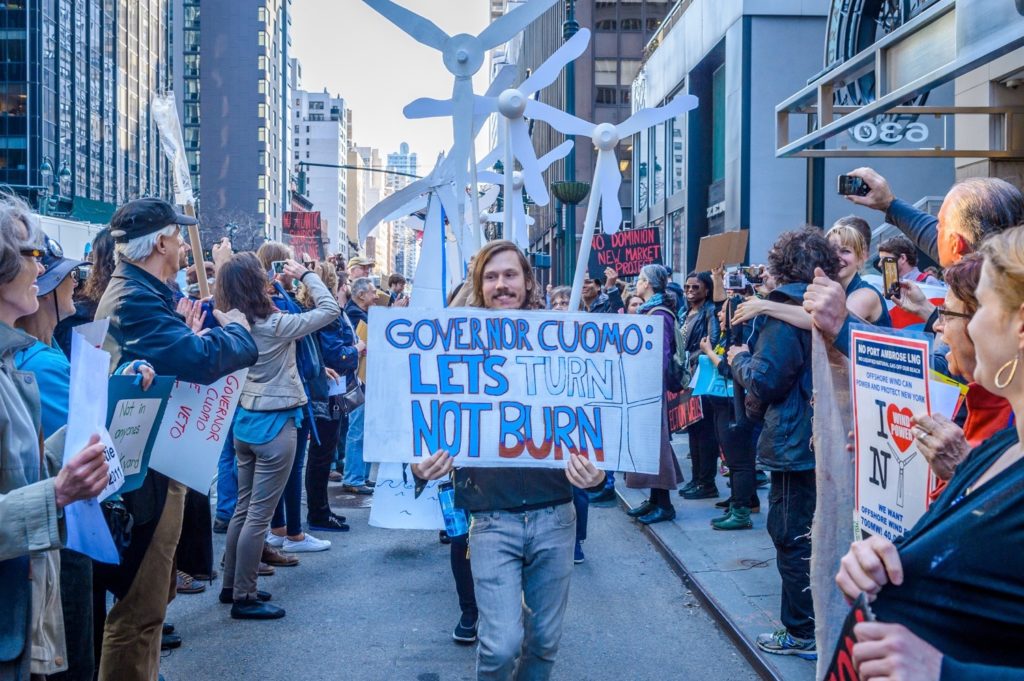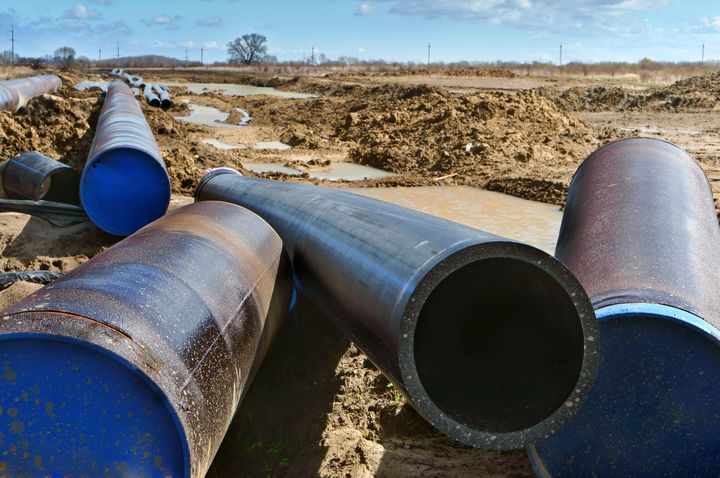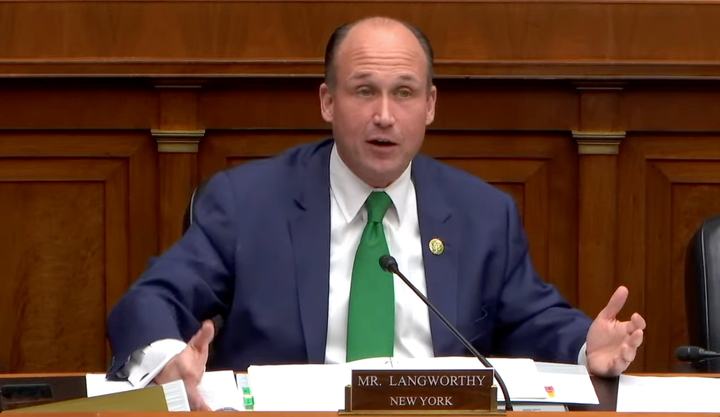Ahead of a July 13 deadline for public comment, utility company National Grid is attempting to enlist its customers in petitioning the state of New York for approval of the Northeast Supply Enhancement (NESE) pipeline, which would help the company transport fracked gas from Pennsylvania to the city.
National Grid is a monopoly gas provider for residences in Brooklyn, Staten Island, Long Island, and most of Queens. The company’s blast email asking customers to sign its petition comes after it spent over $200,000 last year—earned in part through natural gas rates to New Yorkers who have no choice but to buy from them—on New York lobbying on the pipeline and other issues.
Yesterday afternoon, National Grid’s residential customers received an email from the utility with the subject line, “Natural gas supplies are at risk in downstate New York,” stating that they would not be able to expand gas service unless the NESE pipeline is approved. The email urges customers to “TAKE ACTION” by signing a petition that would be sent to New York Governor Andrew Cuomo, environmental regulators, and elected officials. The petition is hosted by a D.C. advocacy company called One Click Politics that advertises itself as used by over 75 Hill lobbying groups.

The NESE pipeline, a proposal topping $1 billion, would be operated by the Oklahoma-based Williams Companies’ New York subsidiary, Transcontinental Gas Pipe Line Company. It would expand the Transcontinental pipeline, which originates in Texas, to bring fracked gas for sale exclusively to National Grid. The proposed 24-mile project, also known as the Williams Pipeline, would extend from New Jersey’s Raritan Bay under New York’s Harbor. It is opposed by the Stop the Williams Pipeline coalition, which includes 350 Brooklyn, Food & Water Watch, New York Communities for Change, Sane Energy Project, Surfrider NYC, and other groups.
In mid-May, Governor Cuomo denied the permits for the NESE pipeline based primarily on water quality concerns, and in early June, New Jersey Governor Phil Murphy followed suit in rejecting permits for environmental reasons. On June 25, the New York State Department of Environmental Conservation (DEC) extended the regulatory comment period for the proposed Northeast Supply Enhancement (NESE) pipeline to July 13, at which point it will receive another ruling within one year.
On May 16, Grist reported that the DEC had received 14,000 comments from 45,000 individuals, with about 90% of the comments expressing opposition to the pipeline. A June 25th post from a New Jersey-focused advocacy group, SCRAP-NESE, highlighted more climate and environmental issues with the NESE pipeline’s re-application, including impacts on aquatic organisms and unsafe construction schedules.
Following New York’s move in May, National Grid threatened to stop approving new gas customers unless NESE’s permits were approved. Reuters reported on May 17, “The rejection was the latest of many projects the DEC has rejected for environmental reasons over the past few years.”
Some environmental activists say National Grid is misleading its customers with false threats of natural gas scarcity.
“National Grid’s push for the Williams Pipeline using false shortage scare tactics is reckless and unethical,” Lee Ziesche, an organizer with the Sane Energy Project, told Sludge.
“A report from a former New York DEC regional director proves there’s no gas shortage, and science proves that expanding fracked gas infrastructure is a climate disaster,” Ziesche said. “The only thing at risk here is National Grid’s fracked gas business model as we make the inevitable transition to renewable energy.”
Robert Wood, an organizer with 350 Brooklyn, has concerns about National Grid’s extensive influence in state government, allowing it to make threats of service cutoffs without wider public accountability. “The lack of a regulatory framework, combined with monopoly power—you have a really ugly situation,” Wood told Sludge.
“National Grid is a private corporation, beholden to shareholders, and has a monopoly over gas service. What’s enabling them to claim a shortage of that gas is a regulatory vacuum that allows them to say anything they want and be believed. In truth, not a single agency at the federal, state, or city level has investigated the real need for this pipeline. National Grid is taking advantage of that vacuum and its monopoly status to hold ratepayers hostage as a way of pressuring Governor Cuomo into giving them what they want,” Wood said.
The Stop the Williams Pipeline coalition has called for investment in renewable energy—as Ziesche put it—to “start investing our ratepayer dollars in renewable heating now.” New York Communities for Change’s campaign webpage calls on Gov. Cuomo to “rapidly take New York to 100% renewable energy, while stopping all fracked gas and oil infrastructure projects, such as the proposed Williams Pipeline.”

In early May, Wood and climate activist with the NYC Democratic Socialists of America Aaron Eisenberg wrote an op-ed for City Limits that highlighted a March 2019 report from a former DEC director. One key finding: “Installing modern air or geothermal heat pumps in small residential buildings and homes in the City can cut average daily load by at least 33 percent of the proposed pipeline’s capacity.”
“As the NYSDEC itself has warned, the Williams NESE Pipeline would obliterate any chances of meeting state emissions reduction goals, and all while contributing to more climate change-fueled storms like Hurricane Sandy,” Wood and Eisenberg wrote.
Wood told Sludge he believes the heat pump and efficiency questions are motivators for National Grid’s pipeline lobbying, as heat pumps run on electricity, and National Grid in this area only serves natural gas for cooking, heating, and hot water. “If National Grid is contracted to use gas for 15 years, that completely reduces any incentives to switch to renewable options. Their goal is to lock in market share and pass along costs to ratepayers.”
One of the dangers of fracking production is that when natural gas escapes unburned, its essential component, methane, acts as a greenhouse gas more than 80 times as potent as carbon dioxide over 20 years.
For over the past decade, National Grid has spent around $2 million in annual lobbying at the federal level, according to the Center for Responsive Politics. Its 2018 lobbying stood at $1.92 million, with its largest recipient last year being $240,000 to the major D.C. firm Akin Gump Strauss Hauer & Feld LLP.
National Grid, a UK-based publicly-traded utility with nearly $20 billion in annual revenue, splits gas service in Manhattan and northern Queens with Con Edison, but is a monopoly gas provider for much of the NYC metropolitan area.
Last year, National Grid disclosed $201,040 on New York lobbying through its own staff and three outside vendors. According to documents filed with the New York Joint Commission on Public Ethics, National Grid’s top local lobbying firms last year were Yoswein New York, a public affairs company, at $96,000, and Statewide Public Affairs, at $62,862.
Williams Companies contracted for New York lobbying with Urban Strategies, LLC, a firm with three employees who serve as regional board members for the NY League of Conservation Voters, according to a report from Derek Seidman of LittleSis. The NY League of Conservation Voters does not appear to have taken a position on the pipeline, despite the concerns of environmental advocates in New York.
In 2018, the Williams Companies reported spending a total of $551,147 on New York lobbying through their own staff and six outside groups. The Tulsa-based company’s annual lobbying disclosures in New York extend back to 2011.
Sludge left a message on Tuesday afternoon with National Grid’s media office, and emailed its Brooklyn press contact and left them a voicemail. Sludge also sent a LinkedIn message to Nelson Perez, National Grid’s D.C.-based VP of Government Relations, who is listed in New York state disclosures as the Chief Administrative Officer. National Grid’s press person responded to say that responses are expected on Wednesday, July 10th.
The global firm FTI Consulting, involved in recent astro-turfing efforts for fossil fuel giants and anti-union propaganda campaigns, lists National Grid among its clients. National Grid has also employed lobbyists who are among Gov. Cuomo’s inner circle and senior campaign staff. In August of last year, Rob Galbraith and Derek Seidman reported for LittleSis: “Tonio Burgos is a former aide to Mario Cuomo and a major Andrew Cuomo donor. Burgos has given at least $85,800 to Andrew Cuomo personally and $201,800 through his lobbying firm Tonio Burgos & Associates. Burgos lobbied for Williams Companies from 2008 through 2018 and has also lobbied for other fossil fuel industry clients including National Grid and NRG in the past.”
From 2011-2014, Burgos & Associates lobbied in New York for National Grid, with a contract that in its final year totaled $90,000. An email inquiry regarding whether Burgos & Associates continues to lobby for Williams Companies on energy issues was not responded to at time of publication.
In September of last year, David Sirota and Chase Woodruff reported for WNYC and Capital & Main that Andrew Cuomo hired campaign manager Maggie Moran away from her role as a Williams Companies lobbyist.
The goal of no new fossil fuel infrastructure is Demand #2 of the Fossil Free movement, an advocacy project of 350.org. Climate scientists have emphasized that no new fossil-fueled projects should be constructed to keep global warming below thresholds of 1.5 to 2 degrees Celsius, amounts over which will cause catastrophic climate degradation.
Update, Wed. July 10, 4:45pm ET: The Brooklyn area National Grid press contact responded over email to four questions with the following two-sentence response: “National Grid complies with all city, state and federal lobbying guidelines and reporting requirements. Our education outreach about the impact of natural gas supply constraints provides information for consumers and customers if they are planning for new or upgraded natural gas service, and how approvals and permits required for the project will impact their plans.”



